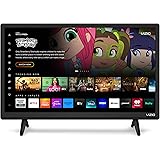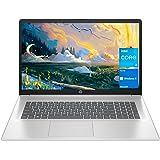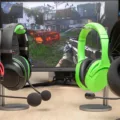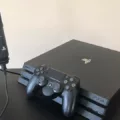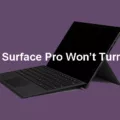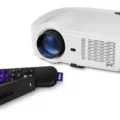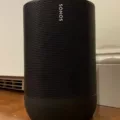TVs are a common staple in households around the world. We rely on them for entertainment, news, and even as a source of information. But when it comes to setting up our TVs, we often face the dilemma of where to place them and how to connect them to a power source.
One question that frequently arises is whether it is safe to plug a TV into an extension cord. The answer to this question depends on a few factors. Firstly, it is important to consider the type of extension cord you are using. There are different types of extension cords available in the market, each designed for specific purposes.
If you are planning to use a medium-duty extension cord, you can rest assured that it is safe to plug your TV into it. Medium-duty extension cords are specifically designed to handle appliances that draw up to 10 amps, which includes TVs, computers, and other electronics. These cords usually have a slightly larger gauge and a three-prong grounded plug, ensuring a safe and secure connection.
However, it is worth noting that plugging your TV into a surge protector is highly recommended. Surge protectors are designed to protect your electronic devices from power spikes or surges. During a storm or a sudden power fluctuation, a surge protector acts as a shield, preventing any potential damage to your TV or other connected devices. So, even if you are using a medium-duty extension cord, it is always a good idea to connect it to a surge protector for added protection.
On the other hand, if you are using a low-wattage cord such as a 16-gauge cord, it is not recommended to plug your TV into it. These cords are intended for use with small appliances like portable fans, alarm clocks, or table lamps. TVs, being higher-power devices, require a more robust power source.
It is generally safe to plug your TV into a medium-duty extension cord, as long as you also connect it to a surge protector. This will help protect your TV from potential power surges and ensure its longevity. However, it is important to avoid using low-wattage cords for your TV, as they may not provide enough power for proper functioning. As always, it is best to consult the manufacturer’s instructions or seek professional advice if you have any concerns or doubts.
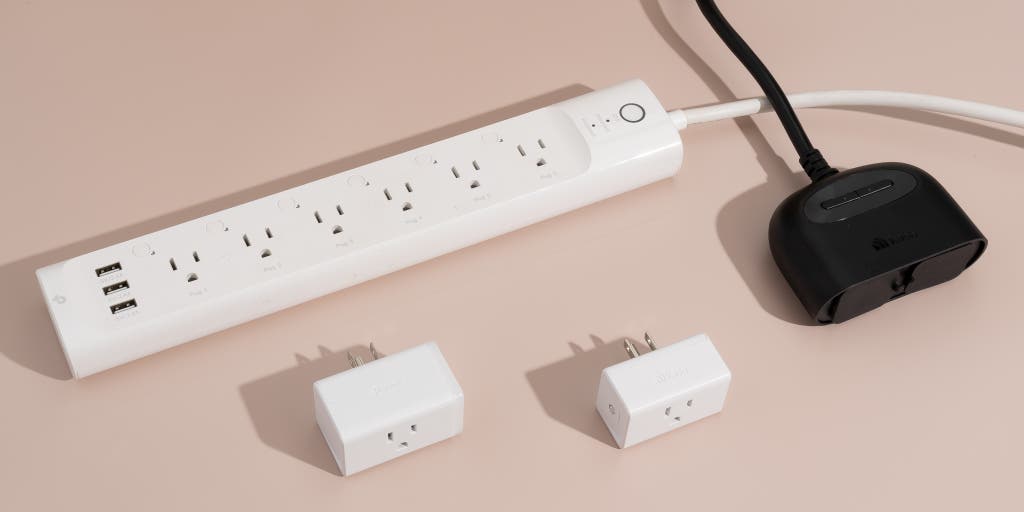
Can You Use an Extension Cord with TV?
You can use an extension cord with a TV. However, it is important to choose the right type of extension cord to ensure safety and proper functioning of your TV. A medium-duty extension cord is recommended for use with TVs and other electronics.
Medium-duty extension cords are designed to handle the power requirements of appliances like televisions, computers, and other electronics that typically draw up to 10 amps. These extension cords have a slightly larger gauge wire and a three-prong grounded plug.
Using a medium-duty extension cord with your TV allows you to extend the reach of the power source without compromising on the quality of the power supply. It is important to note that the length of the extension cord should be appropriate for your needs, as longer extension cords can result in voltage drop and potential damage to your TV.
To ensure safety, it is recommended to choose an extension cord that is UL listed, which means it has been tested and approved by Underwriters Laboratories for safety and performance. Additionally, make sure the extension cord is in good condition, without any frayed or damaged wires.
It is also important to use the extension cord correctly by not overloading it with too many devices or appliances. Overloading an extension cord can lead to overheating and potentially cause a fire hazard.
Using an extension cord with your TV is possible, but it is crucial to select a medium-duty extension cord that is appropriate for the power requirements of your TV. Always prioritize safety by choosing a UL listed cord, ensuring it is in good condition, and not overloading it with too many devices.
Should You Plug Your TV Into a Surge Protector or Outlet?
There are several reasons why it is recommended to plug your TV into a surge protector rather than directly into an outlet:
1. Protection against power surges: A surge protector is designed to absorb and redirect excess voltage, protecting your TV from power surges. Power surges can occur during thunderstorms, when the electrical grid experiences fluctuations, or when large appliances in your home turn on or off. These surges can potentially damage your TV’s sensitive components.
2. Longevity of your TV: Power surges can significantly shorten the lifespan of your TV. By using a surge protector, you can help extend the life of your TV by preventing damage caused by sudden voltage spikes.
3. Protection against electrical faults: In addition to power surges, a surge protector can also safeguard your TV against other electrical faults, such as short circuits or electrical fires. These faults can occur due to faulty wiring, defective appliances, or other unforeseen circumstances. Using a surge protector adds an extra layer of protection against such risks.
4. Multiple device protection: Surge protectors usually come with multiple outlets, allowing you to connect several devices to a single protector. This is particularly useful if you have multiple electronics in your entertainment setup, such as a gaming console, DVD player, or sound system. By plugging all these devices into the surge protector, you can ensure they are all protected from power surges.
5. Convenience and organization: Using a surge protector helps keep your TV setup organized by reducing cable clutter. With multiple outlets available on the surge protector, you can avoid having multiple power cords directly plugged into the wall outlet. This not only improves the aesthetics of your setup but also makes it easier to manage and rearrange your devices when needed.
It is important to note that not all surge protectors are created equal. Look for surge protectors that provide sufficient joule rating (the measure of energy absorption) and have a high clamping voltage (the voltage at which the surge protector activates). Additionally, consider surge protectors with features like automatic shutdown or surge protection indicator lights for added peace of mind.
Plugging your TV into a surge protector is highly recommended to protect it from power surges, extend its lifespan, safeguard against electrical faults, and provide convenience and organization to your setup.
Is a 16 Gauge Extension Cord Good for a TV?
A 16-gauge extension cord is not recommended for use with a TV. 16-gauge cords are designed for low-wattage appliances such as portable fans, alarm clocks, table lamps, or floor lamps. They are not suitable for electronic devices like TVs or computers, which require a higher power capacity. Using a 16-gauge extension cord with a TV can result in overheating and potential damage to the cord or the TV itself. It is advisable to use a surge protector or a higher-gauge extension cord specifically designed for electronic devices to ensure safe and optimal performance.
Can You Extend a TV Power Cable?
It is possible to extend a TV power cable. One way to do this is by using a C13 to C14 Extension Cable. This type of cable is designed to connect the C13 end of a power lead to the C14 end of another cable, effectively extending the length of the power lead.
The C13 connector is commonly found on TV power cables, while the C14 connector is typically found on power sources such as wall sockets or power strips. By using a C13 to C14 Extension Cable, you can easily connect the existing TV power cable to a power source that may be further away.
It is important to note that when extending a power cable, it is crucial to ensure that the extension cable is of high quality and properly rated for the power requirements of the TV. This will help to prevent any potential electrical hazards or damage to the TV.
Additionally, it is worth mentioning that there are also C15 Power Cables available, which are similar to C13 cables but have an extra notch in the connector. C15 Power Cables are often referred to as “hot connector” cables as they have a higher temperature rating. These cables may be suitable for TVs or other devices that require a higher temperature tolerance.
Yes, you can extend a TV power cable by using a C13 to C14 Extension Cable. Just ensure that the extension cable is of high quality and properly rated for the power requirements of the TV.
Conclusion
When it comes to powering your TV, it is important to use the appropriate extension cord to ensure optimal performance and safety. For televisions and other electronics that draw up to 10 amps, a medium-duty extension cord with a slightly larger gauge and a three-prong grounded plug is the best choice. This type of cord is designed to handle the power requirements of these devices without overheating or causing damage.
It is also crucial to protect your TV and other electronics from power surges and spikes. Plugging them into a surge protector is highly recommended to prevent any potential damage to the devices or loss of important data. Power surges can occur during storms or due to fluctuations in the electrical grid, and using a surge protector can help safeguard your valuable electronics.
For low-wattage devices such as portable fans, alarm clocks, table lamps, or floor lamps, a 16-gauge cord is suitable. However, it is important to note that electronic devices like TVs and computers should always be connected to a surge protector, even if they are using a low-wattage cord.
In addition, if you need to extend the length of your IEC power lead, you can use a C13 to C14 extension cable. This allows you to connect your device to a power source that is further away while still maintaining a secure and reliable connection.
Lastly, if you have a device with a C15 power connector, such as certain high-temperature appliances, it is important to use a C15 power cable. These cables are designed to handle the higher temperature ratings of these specific devices.
By using the appropriate extension cord and taking necessary precautions such as using surge protectors, you can ensure the longevity and proper functioning of your TV and other electronic devices.

